
To the memory of my parents,
TREVOR SANSOM (19212000)
and
ANN SANSOM (19241990),
who in 19391945 endured the hardships
and did their bit to defeat the Nazis.
And of
ROSALITA,
R.I.P. 19.2.2012
The whole fury and might of the enemy must very soon be turned on us. Hitler knows that he will have to break us in this island or lose the war. If we can stand up to him all Europe may be free, and the life of the world will move forward into broad, sunlit uplands; but if we fail, then the whole world, including the United States, and all that we have known and cared for, will sink into the abyss of a new dark age made more sinister, and perhaps more prolonged, by the lights of a perverted science.
WINSTON CHURCHILL, 18 June 1940
All events that take place after
5 p.m. on 9 May 1940
are imaginary.
Prologue
The Cabinet Room, 10 Downing Street, London
4.30 p.m., 9 May 1940
CHURCHILL WAS LAST TO ARRIVE. He knocked once, sharply, and entered. Through the tall windows the warm spring day was fading, shadows lengthening on Horse Guards Parade. Margesson, the Conservative Chief Whip, sat with Prime Minister Chamberlain and Foreign Secretary Lord Halifax at the far end of the long, coffin-shaped table which dominated the Cabinet room. As Churchill approached them Margesson, formally dressed as ever in immaculate black morning coat, stood up.
Winston.
Churchill nodded at the Chief Whip, looking him sternly in the eye. Margesson, who was Chamberlains creature, had made life difficult for him when he had stood out against party policy over India and Germany in the years before the war. He turned to Chamberlain and Halifax, the Prime Ministers right-hand man in the governments appeasement of Germany. Neville. Edward. Both men looked bad; no sign today of Chamberlains habitual half-sneer, nor of the snappy arrogance which had alienated the House of Commons during yesterdays debate over the military defeat in Norway. Ninety Conservatives had voted with the Opposition or abstained; Chamberlain had left the chamber followed by shouts of Go! The Prime Ministers eyes were red from lack of sleep or perhaps even tears though it was hard to imagine Neville Chamberlain weeping. Last night the word around a feverish House of Commons was that his leadership could not survive.
Halifax looked little better. The Foreign Secretary held his enormously tall, thin body as erect as ever but his face was deathly pale, white skin stretched over his long, bony features. The rumour was that he was reluctant to take over, did not have the stomach for the premiership literally, for at times of stress he was plagued with agonizing pains in his gut.
Churchill addressed Chamberlain, his deep voice sombre, the lisp pronounced. What is the latest news?
More German forces massed at the Belgian border. There could be an attack at any time.
There was silence for a moment, the tick of a carriage clock on the marble mantelpiece suddenly loud.
Please sit down, Chamberlain said.
Churchill took a chair. Chamberlain continued, in tones of quiet sadness: We have discussed yesterdays Commons vote at considerable length. We feel there are grave difficulties in my remaining as Prime Minister. I have made up my mind that I must go. Support for me within the party is haemorrhaging. If there should be a vote of confidence, yesterdays abstainers may vote against the government. And soundings with the Labour Party indicate they would only join a coalition under a new Prime Minister. It is impossible for me to continue with this level of personal antipathy. Chamberlain looked again at Margesson, almost as though seeking succour, but the Chief Whip only nodded sadly and said, If we are to have a coalition now, which we must, national unity is essential.
Looking at Chamberlain, Churchill could find it in himself to pity him. He had lost everything; for two years he had tried to meet Hitlers demands, believing the Fhrer had made his last claim for territory at Munich only for him to invade Czechoslovakia a few months later, and then Poland. After Poland fell there had been seven months of military inaction, of phoney war. Last month Chamberlain had told the Commons that Hitler had missed the bus for a spring campaign, only for him suddenly to invade and occupy Norway, throwing back British forces. France would be next. Chamberlain looked between Churchill and Halifax. Then he spoke again, his voice still expressionless. It is between the two of you. I would be willing, if desired, to serve under either.
Churchill nodded and leaned back in his chair. He looked at Halifax, who met his gaze with a cold, probing stare. Churchill knew Halifax held nearly all the cards, that most of the Conservative Party wanted him as the next Prime Minister. He had been Viceroy of India, a senior minister for years, a cool, steady, Olympian aristocrat, both trusted and respected. And most Tories had never forgiven Churchill his Liberal past, nor his opposition to his own party over Germany. They viewed him as an adventurer, unreliable, lacking in judgement. Chamberlain wanted Halifax, as did Margesson, together with most of the Cabinet. And so, Churchill knew, did Halifaxs friend, the King. But Halifax had no fire in his belly, none. Churchill loathed Hitler but Halifax treated the Nazi leader with a sort of patrician contempt; he had once said the only people the Fhrer made life difficult for in Germany were a few trade unionists and Jews.
Churchill, though, had had the wind in his sails with the public since war was declared last September; Chamberlain had been forced to bring him back into the Cabinet when his warnings over Hitler had, finally, been proved right. But how to play that one card? Churchill settled more firmly into his chair. Say nothing, he thought, see where Halifax stands, whether he wants the job at all, and how much.
Winston, Chamberlain began, his tone questioning now. You were very rough on Labour in the debate yesterday. And you have always been their fierce opponent. Do you think this might be an obstacle for you?
Churchill did not answer, but stood abruptly and walked over to the window, looking out into the bright spring afternoon. Dont reply, he thought. Flush Halifax out.
The carriage clock struck five, a high, pinging sound. As it finished Big Ben began booming out the hour. As the last note died away Halifax finally spoke.
I think, he said, that I would be better placed to deal with the Labour men.
Churchill turned and faced him, his expression suddenly fierce. The trials to be faced, Edward, will be very terrible. Halifax looked tired, desperately unhappy, but there was determination in his face now. He had found steel in himself after all.
That, Winston, is why I would like you at my side in a new, smaller War Cabinet. You would be Minister of Defence, you would have overall responsibility for conduct of the war.
Churchill considered the offer, moving his heavy jaw slowly from side to side. If he was in charge of the war effort, perhaps he could dominate Halifax, become Prime Minister in all but name. It all depended on who else Halifax put in place. He asked, And the others? Who will you appoint?
From the Conservatives, you and I and Sam Hoare; I think that best reflects the balance of opinion within the party. Attlee for Labour, and Lloyd George to represent the Liberal interest, and as a national figure, the man who led us to victory in 1918. Halifax turned to Chamberlain. I think you could be of most use now, Neville, as Leader of the Commons.
Next page

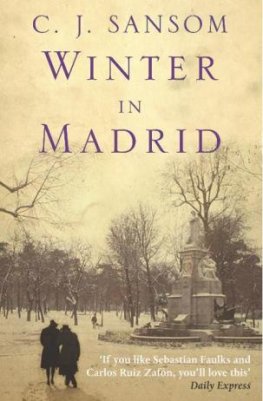
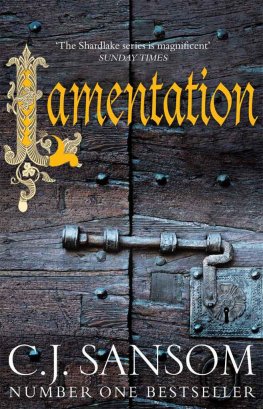
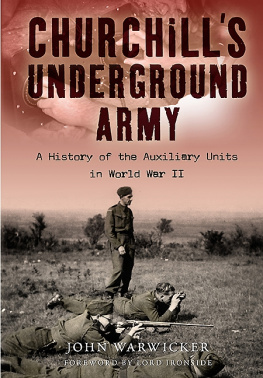

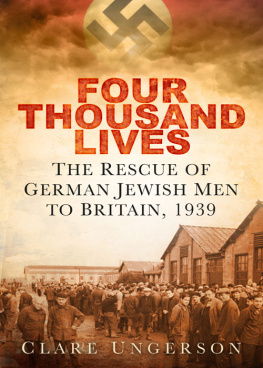
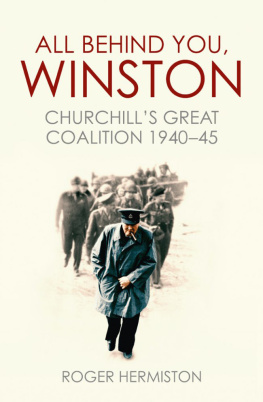
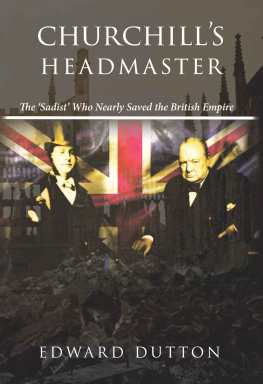
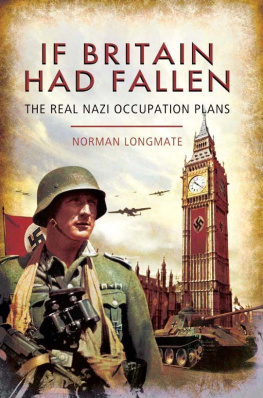
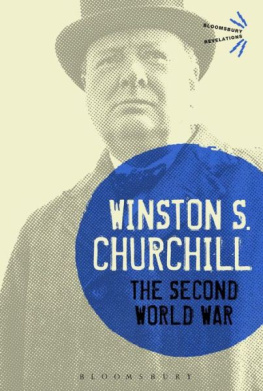
![Nicholas Rankin [Nicholas Rankin] - Churchills Wizards](/uploads/posts/book/56578/thumbs/nicholas-rankin-nicholas-rankin-churchill-s.jpg)
